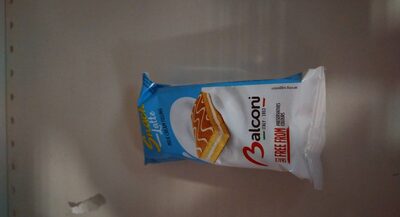
Barcode: 80633082
Snack latte
HALAL
📝 Reason: Most ingredients listed for ‘Snack latte’ are plant-based or dairy, and thus Halal. Main concerns are the generic ‘flavorings’, the ’emulsifiers: mono- and diglycerides of fatty acids’, and ‘whey powder’. These may be derived from animal sources or processed with haram ingredients if not certified Halal. Doubtful status is applied where source ambiguity exists (Quran 5:3). According to Islamic dietary law, doubtful ingredients should be avoided unless verified (see IFANCA, GuidanceHalal.com).
🏷️ Category: N, /, A
📄 Certificates: Made In Italy, Vegetarisch
Ingredients:
Details
Is Snack Latte Halal? Exploring Its Ingredients
When it comes to understanding the Halal status of food products, Snack Latte, a delightful ready-to-drink beverage, has raised some interest. Consumers are often curious about the ingredients and their sources, specifically whether they align with Halal dietary laws. In this post, we will delve deep into the ingredients of Snack Latte and discuss their respective Halal statuses.
What Does Halal Mean?
Halal, meaning ‘permissible’ in Arabic, refers to what is allowed in Islamic law. Food that meets Halal standards avoids any ingredients derived from prohibited sources, and is prepared in a manner compliant with Islamic guidelines.
Snack Latte’s Ingredient Breakdown
Snack Latte contains a variety of ingredients. Here’s a detailed look:
- Sugar: Generally Halal, sugar is derived from plants unless processed with bone char from non-Halal animals, which is rare in Europe. Source
- Wheat Flour: A plant-based product that is Halal by nature. Source
- Vegetable Fats (Palm, Palm Kernel, Coconut): All derived from plants, making them Halal. Source
- Fresh Yeast: Microorganisms used in baking and cooking, considered Halal. Source
- Fructose and Glucose Syrup: Plant-derived sugars, thus Halal. Source
- Milk (5.2%): Cow’s or sheep’s milk is typically Halal unless from a haram source. Source
- Wool Milk – The Tada (3.5%): Sheep’s milk is Halal if sourced from Halal sheep. Source
- Skim Milk Powder: Dehydrated milk, generally Halal. Source
- Milk Proteins: Derivatives of milk, and Halal if no haram additives are present. Source
- Flavorings: This term is vague and could include alcohol or ingredients from animal sources unless further specified. Source
- Emulsifiers: Mono- and Diglycerides of Fatty Acids: These could come from animal or plant sources; clarification is needed for Halal status. Source
- Soy Lecithin: A plant-sourced emulsifier that is Halal. Source
- Leavening Agents (Ammonium Carbonates, Sodium Carbonates, Diphosphates): All considered Halal and mineral-based. Source
- Salt: A mineral that is always Halal. Source
- Lactose: Derived from milk and Halal by default. Source
- Whey Powder: Can potentially be derived from non-Halal sources due to animal rennet used in cheese making, hence should be approached with caution. Source
- May Contain Traces of Stone Fruits: Plant-based and considered Halal. Source
Conclusion: Snack Latte’s Halal Status
Overall, most ingredients in Snack Latte are either plant-based or dairy and therefore considered Halal. However, the status of some, especially ‘flavorings’, emulsifiers, and whey powder, can raise concerns due to their generic nature. It is imperative for consumers to verify the Halal certification if they wish to be sure of their dietary choices. Snack Latte is certified as made in Italy and labeled vegetarian, adding an additional layer of trust in the product.
For those adhering to a Halal lifestyle, it’s always wise to consult reliable sources and possibly reach out to manufacturers for clarity on ambiguous ingredient status.
